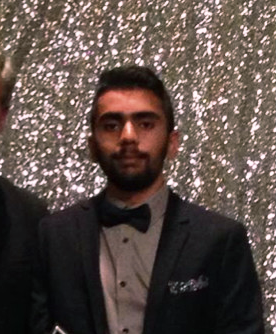Fall 2019 Canada-Wide Competition
We are happy to announce that the big winner of our Fall 2019 Student Action on canadian water attitudes Competition is St. Mary’s School in Estevan, Saskatchewan! congratulations st. mary’s staff members and students!
Our Judges
Helen Bae
Helen is currently a Senior Manager of Finance in Business Financial Services at RBC. She enjoys her role as a financial advisor to various business partners, specifically in the areas of business strategy, management reporting for performance measurement, and forecast and planning processes. Helen holds a Bachelor of Business Administration from Schulich School of Business at York University, and a Master of Business Administration from Ryerson University. In her spare time, Helen loves to read, travel and practice yoga, and enjoys being close to nature by camping and hiking.
Miriam Clark
Miriam is a Professional Engineer with experience in water treatment and energy infrastructure. She is motivated by bringing people together to solve complex challenges and is passionate about the sustainable development of natural resources. A proponent of lifelong learning, Miriam is a MBA candidate with the Cornell University Johnson Graduate School of Management and the Queens University Smith School of Business. She is currently employed with TC Energy as the Engineering Standards Collection Manager, working to refine and share technical knowledge across the company.
Jimmy Huang
Jimmy is currently a co-op student at RBC as a software developer. His academic background consists of studying business administration at Wilfrid Laurier and computer science at the University of Waterloo. In his free time, he enjoys swimming at his local community centre. He decided to volunteer for this event because he wants to raise awareness about drinking water. When he is swimming, he is surrounded by water, but the water is undrinkable due the level of chlorine contained in the pool. Similarly, although 71% of Earth is covered by water, only 2.5% of it is consumable freshwater. As a result, for many people in the world, water scarcity is a severe issue that threatens their very livelihood. He is excited about this opportunity and he looks forward to the students’ submissions.
Sydney Myles
Sydney currently works in the Digital Department at RBC. She holds a Bachelor of Arts in Global Studies from Ryerson University and a Master’s of Arts in Globalization from McMaster University. Sydney’s graduate research pertained to international political economics and the privatization of water. In her spare time, Sydney enjoys watching animal documentaries, reading, and exploring the green spaces in Toronto.
Hamzah Naeem
Hamzah is a civil engineering student at the University of Calgary. He is currently working as a Manufacturing and Construction Intern with TC Energy. As a civil engineer, he might have the opportunity to explore a career in water/wastewater engineering. He decided to volunteer because he would love to raise awareness amongst the public about their water.
Patti Shaw
Patti is a Project Commitment Coordinator, working to ensure environmental and regulatory requirements are complied with in the energy industry in Calgary. She volunteers with Trout Unlimited, and participates in Citizen Science programs such as the Call of the Wetland Amphibian Monitoring Program.
Truman Wong
Truman currently works as a Process Strategist with Canadian Banking Operations at RBC, providing strategic insights to business partners to optimize, simplify, and transform operational processes. Truman holds a Bachelor of Arts from the University of Toronto and is a PMP-credentialed project manager. In his spare time, Truman enjoys travel, checking out the latest gallery exhibitions, and giving back to the community through various non-profit and charitable initiatives, particularly those in support of literacy, protecting the environment, and mentoring the leaders of tomorrow.
Judging Information
The judges (SDWF staff members for the objective categories and volunteers for the subjective categories) will give marks for each of the following categories:
Objective criteria, marked by SDWF staff members
1. Percentage of people who now know where their drinking water comes from (out of 5 possible marks).
2. Number of community members who were engaged in the project (out of 5 possible marks).
3. Litres of water conserved or area of impermeable surface made permeable (out of 5 possible marks) – if actions were made in both areas the one for which the higher mark would be awarded will be judged.
Subjective criteria, marked by volunteers
4. Students changed community members’ attitudes and/or behaviours regarding water (out of 5 possible marks).
5. Pictures and/or videos were included which represent the project (5 marks, 3 marks or 1 mark).
6. Community Members of Various Ages Were Engaged in the Project (out of 3 possible marks).
Judges’ and Safe Drinking Water Foundation staff members' decisions will be final.








